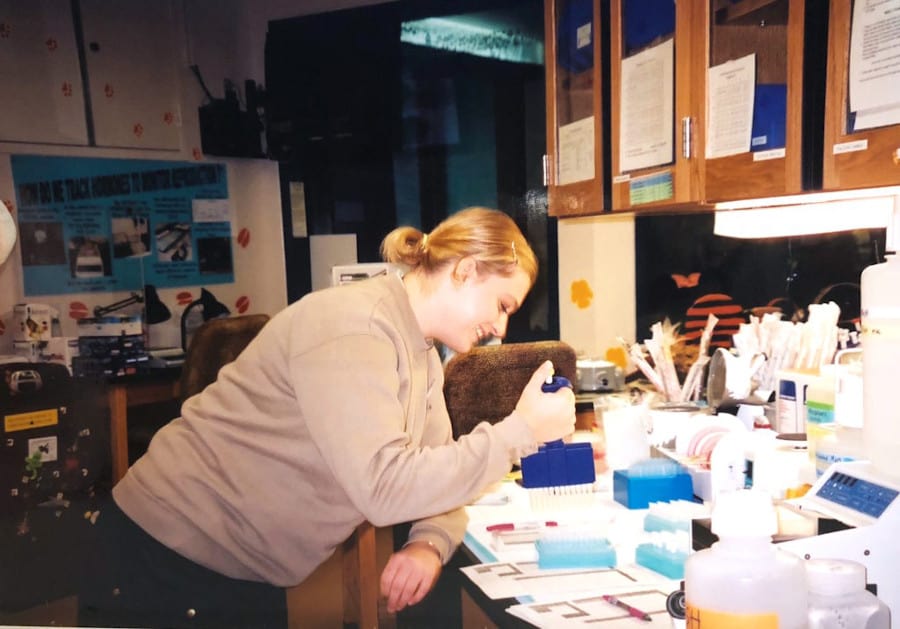*This post contains affiliate links. As an Amazon Associate, I earn from qualifying purchases. This means when you make a purchase, I get a commission at no cost to you! Read more about my affiliates on my Affiliate Links Disclaimer.
Many parents contact me telling me that their child wants to be a scientist. I had one recently contact me that their four-year old son wanted to become a wildlife biologist. Some children know when they are very young (that was not me).
What can parents do to prepare their child for STEM (science, technology, engineering, and math) careers at a young age? Here I am going to share my tips for aspiring scientists of any age if you are one, or if you are a parent, how to foster those scientific interests.
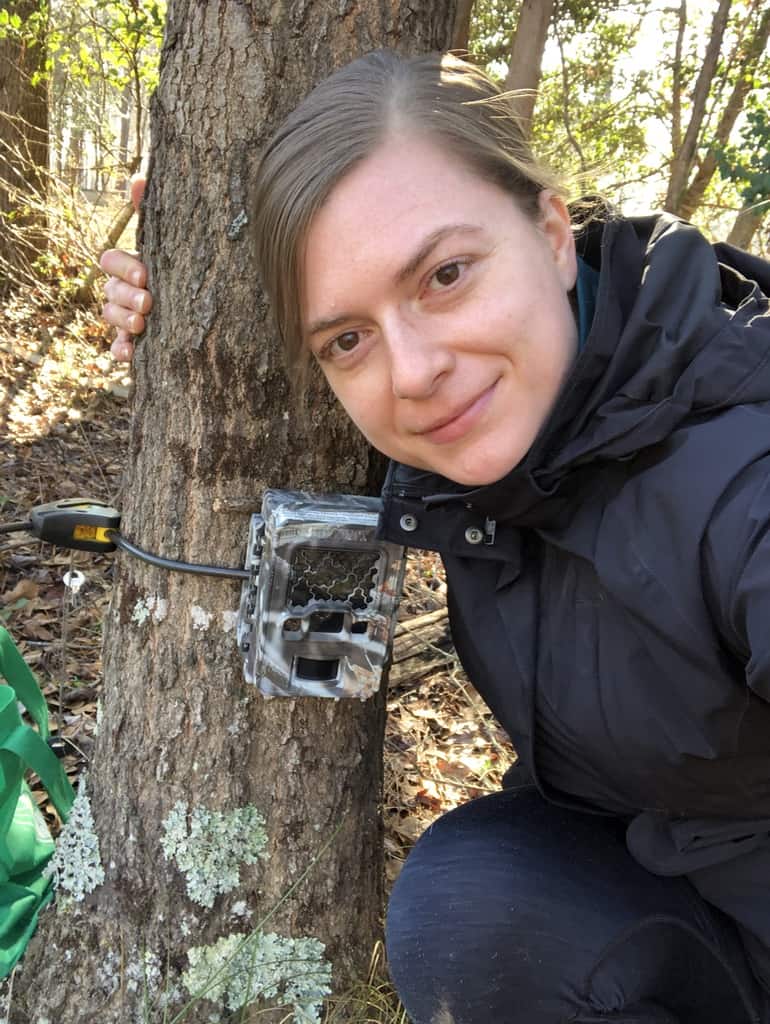
Because I am a wildlife biologist, the suggestions will be more tailored to careers in wildlife biology and ecology, but all will apply to aspiring scientists of all kinds.

Tips for Aspiring Scientists of All Ages
1. Stay Curious and Always Ask Questions
Before I go into specific recommendations and programs, the most important thing aspiring scientists should know is to stay curious and keep asking questions!
Science is all about figuring out answers to questions without answers yet. Just like they teach you in biology class, in the scientific process, you are supposed to come up with a question or hypothesis, make predictions, collect data with a proper protocol in place, analyze your results, and interpret them to see if they match your predictions and refute/fail to refute your hypothesis. In school, labs are designed to show you this process. However, I believe they fail to teach this concept.
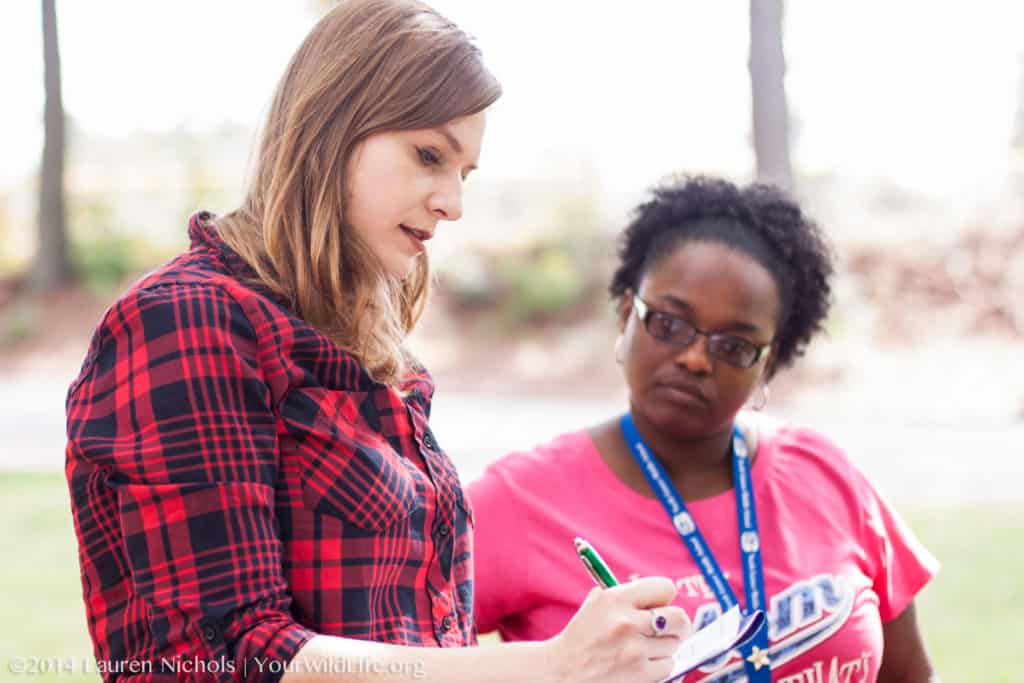
Yes, they teach you to do all of the steps, but the labs are all designed to give you an answer to a question that has already been solved. It’s often on a topic or concept that is important for you to memorize, and often when I was taking a lab, we learned about the topic first in lecture, so I already knew what type of result to expect.
This fails to teach you what science really is – asking your own questions by building off of previous research. Instead, I thought science was all about memorizing facts and theories.
The process/success you experience in biology class will not match up to your expectations in actual research. In biology class, if you study hard enough and put in the work for labs, you will get a good grade.
But as a scientist in real life, you have to formulate the questions/objectives of a study, design the experiment or how you will collect the data, and interpret the outcome from messy data (trust me, it will always be messy).
This requires both curiosity and creativity, which is a direct contrast to how I was taught science in school. I know teachers today are doing better though!
Research (science) is really all about asking questions. I felt like school drilled this out of me because they kept telling me there was one right answer. This was one of the hardest things for me to relearn when I became a graduate student and I still struggle with it today. But this skill will serve you well.
If you are a kid, keep asking questions! If you are a parent or teacher, encourage your child/students to ask questions.
The important thing is not to stop questioning. Curiosity has its own reason for existing. One cannot help but be in awe when he contemplates the mysteries of eternity, of life, of the marvelous structure of reality. It is enough if one tries merely to comprehend a little of this mystery every day. Never lose a holy curiosity.
Albert Einstein
There are a lot of opportunities for kids that can get them interested and involved in wildlife biology. At this stage, it’s really important to foster aspiring scientists’ sense of curiosity. Scientists answer questions about the natural world.
One of the most important things you can do for your child is to keep them curious about the world; reward them for asking questions and encourage it. Investigate, research, or explore the answers together. Lots of them might not have answers! This is important to know as a future scientist.
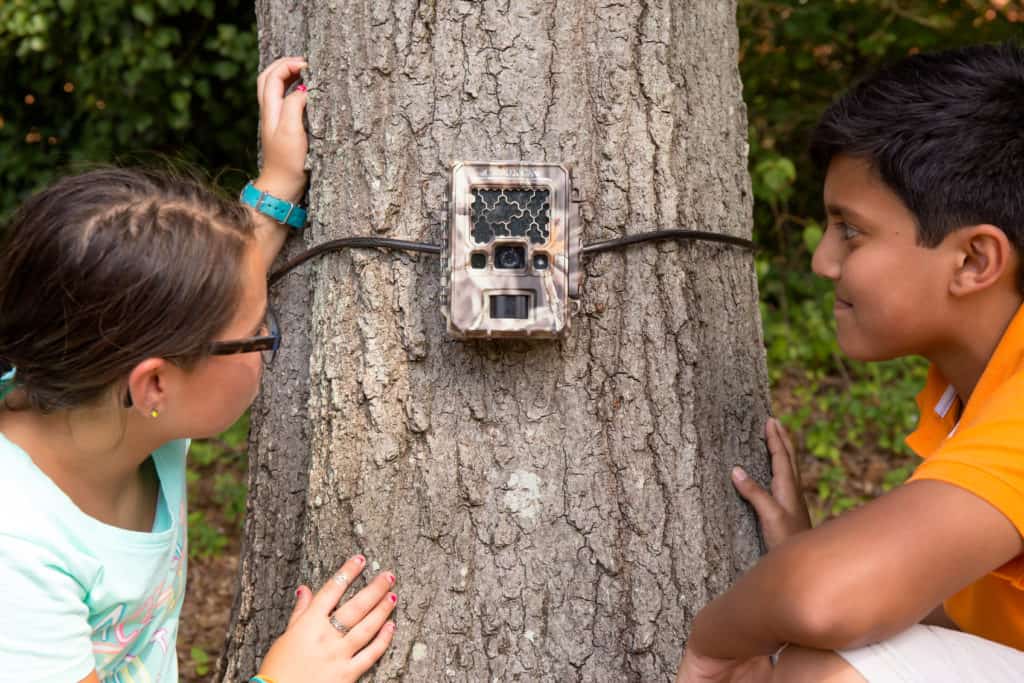
OK, now here are my more specific recommendations for aspiring scientists:
2. Go Outside
This is a big one! Ask any wildlife biologist why they became a wildlife biologist and they will say it’s because they loved being outside as a child. I’ve only met one person thus far who has not said this (but they said watching wildlife on TV was important to them).
Going outside does not have to be special or far. It can be as simple as going in your front or backyard. You may be surprised what you find. For instance, our study found that there was no significant difference in diversity for mammals larger than a chipmunk in wild areas or suburban yards.
We grew up in suburban Western New York. When I volunteered at the Boys and Girls Club in Raleigh, we gave the kids binoculars and just watched birds nearby and they were completely fascinated by common species.
My graduate school colleague Dr. Laura Sullivan-Beckers even discovered a new species of katydid when her daughter overwatered her garden! There is still plenty left to discover in this world.
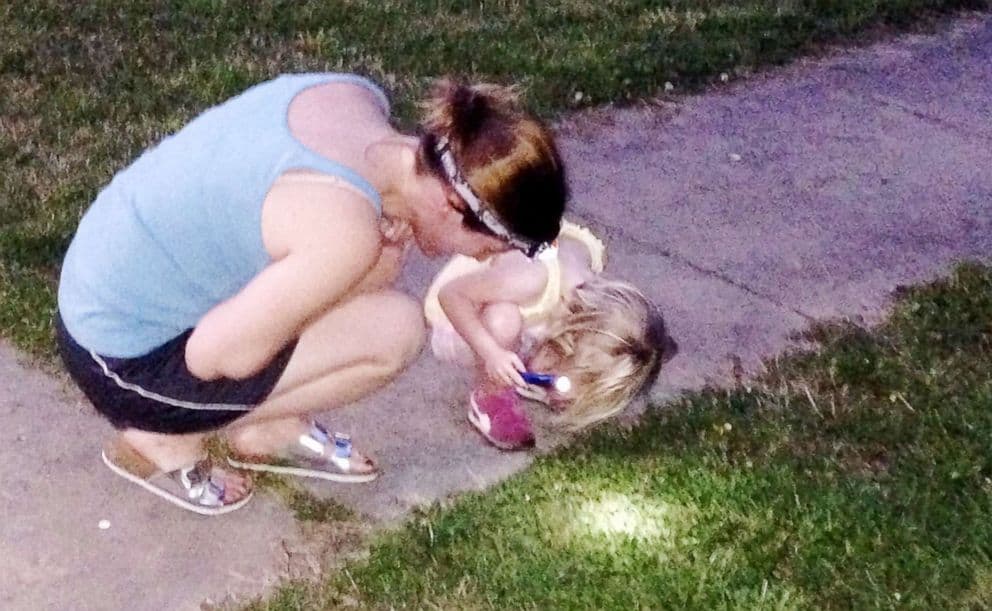
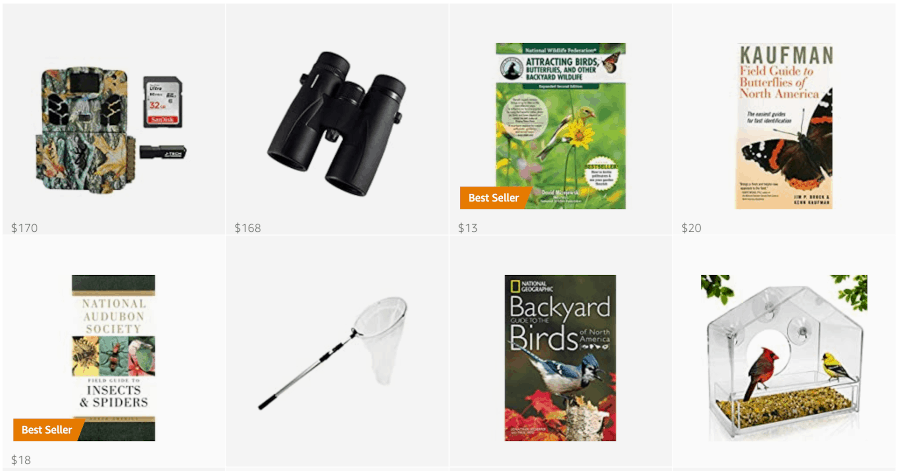
When I was a child, one of my favorite things to do with my family was overturn rocks in our front yard to look at the bugs underneath.
3. Nature and/or Outdoor Clubs
Girl scouts, boy scouts, 4H or any other club that gets kids outside will help foster their interest in wildlife biology. Girl scouts even has a citizen science badge now!
4. STEM Camps and/or After-School Clubs:
More and more, I’m seeing after school STEM opportunities become available to kids. For example, at the North Carolina Museum of Natural Sciences where I work on eMammal, there is a Girls in Science club.
But don’t think that a science camp/club is the only thing that will be helpful for them. Consider the other areas of STEM, especially math to raise a future scientist. Coding and technology are also huge in wildlife biology and you can never learn these skills too early.
I cannot emphasize coding enough. So much of wildlife biology is data analysis and statistics, which is all done through computer programing. Getting your child used to computer programing languages will serve them well later on.
5. Citizen Science:
Foster aspiring scientists with real science!
Citizen science is real science. Citizen science is research where the public helps or completely collects, analyze, and understand real data for research.
You can find a variety of citizen science project through the SciStarter. They allow you to search for projects that are both local and national in scope and according to your area of interest (e.g. birds, astronomy, genetics, etc.).
For some projects, you don’t need anything else besides a smart phone or a computer. I also think that if you don’t know what to do with your child outside (relating back to the first tip), that citizen science provides you with structure to follow and may even help reverse the extinction of experience.
6. Consume Science Media
Some documentaries have amazing content featuring obscure wildlife as well as teaching ecological and evolutionary biology concepts.
The BBC’s Planet Earth and Blue Planet are two such amazing series. I grew up reading National Geographic for kids books on different animals and Ranger Rick magazine. My dad always subscribed to National Geographic and although I was too young to read it, I always looked through it for the pictures.
You do have to be careful though. Some networks have television shows that have little educational value or promotes ways of interacting with animals that can do more harm than good. Check out my tweet on Discovery’s Man vs. Bear).
YouTube science channels: Here you have to be careful as there are no regulations and people can say whatever they want, so you don’t know if what people are saying is true. That being said, there are some great channels out here. Quality channels include AsapSCIENCE, Untamed Science, It’s Okay to Be Smart, and of course mine.
In addition to the suggestions above (many still apply for high school kids), you can also add these activities:
Tips for Aspiring Scientists of Older Ages (9th – 12th Grade High School)
7. Enroll in Science Elective Courses
Encourage aspiring scientists to take any science electives they can in high school. It doesn’t matter if they relate specifically to wildlife biology or not, they will help your child cultivate a scientist mindset.
8. Take Coding Courses
As mentioned before, statistics is HUGE in wildlife biology, and therefore you will need to know how to code. With the rise of big data because of technology and increased computing power, analyses for research are becoming more statistically complex. This means that wildlife biologists write their own code for the statistical analyses and models that they run.
Knowing how to code at a young age would offer a huge advantage to anyone who wants to go into this field. We mostly use the program R, but learning how to code in general will get you in the right “mindset” for coding in other computer languages.

9. Volunteer
It may be harder to find, but there are some great opportunities for kids to volunteer at this age. Check out zoos and museums. I know that our museum (the NC Museum of Natural Sciences) has a junior curator program specifically designed for high school students.
Volunteer at a lab: This is for the much more ambitious student and it may be hard to acquire, but you can still try. What I mean by volunteer at a lab is to find a research lab at a university that you can volunteer with.
To do this, look up university websites located near you and search the appropriate departments and look at the professors’ research pages. They will give you a description of the type of research that they do. You would then contact the professor through a professional email and ask if there are volunteer opportunities in their lab.
Because you are in high school, you might have to work extra hard to convince them that you would be responsible and helpful. Also, this will probably only work during the summers (if the researchers do not come into the lab on the weekends).
Depending on the university, you may have to expand your search beyond the scope of wildlife biology. For example, my undergraduate university did not have majors in wildlife biology or zoology, so I volunteered in a lab within the biological sciences department.
Expect and be willing to do boring chores like cleaning field equipment. You have to start somewhere! One of my current undergraduate researchers volunteered in a lab when she was in high school, so it is possible.
Those are my tips for raising aspiring scientists if you are a parent or an educator, and if you are a child, tips you can use to get a scientific mindset and experience ahead of the game. For more advanced tips for wildlife biology specifically, check out 7 Beginner’s Tips for a Wildlife Biology Career.
Love this post? Share it with friends!

